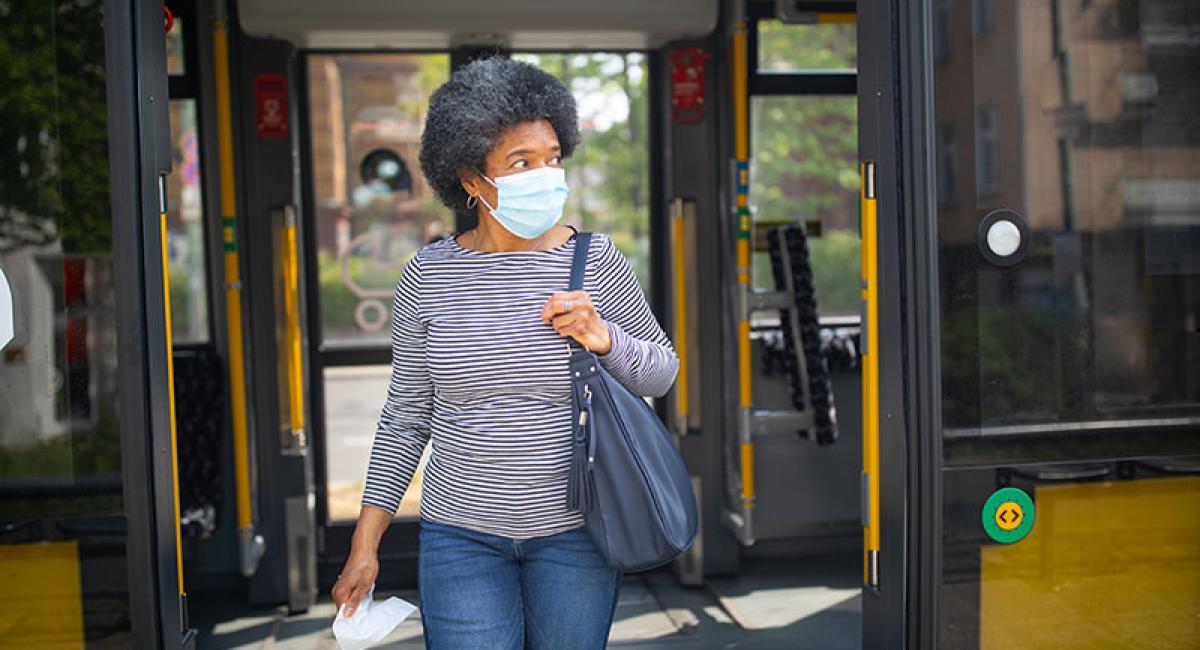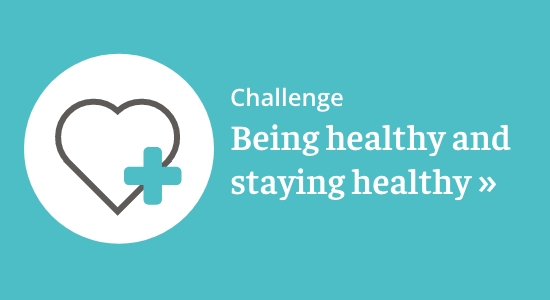
Long-COVID: start of a large-scale mixed-method project to gain insight into the long-term complaints after COVID-19 infection
Starting in October 2021, Nivel will collaborate with three Dutch University Medical Centers and with DHD (Dutch Hospital Data) to conduct research on persistent symptoms after a COVID-19 virus infection (Long-COVID). There will be a specific focus on various vulnerable patient groups. An innovative approach will be used as various real world datasets - and research methods will be combined in order to gain the most insight on the course and severity of Long-COVID.
A number of people who have been infected with the COVID-19 virus experience or develop persistent complaints and symptoms. This is called Long-COVID and little is known about it as it is a relatively ‘new’ condition. In order to minimize the negative consequences for patients who suffered from COVID-19 in the long-term, it is essential to gain insights into these consequences.
Aims: gaining insight into the disease itself and the ‘care pathways’ of patients
First aim of the study is to gain better insight into the nature, scale, severity and duration of Long-COVID. Second, we focus on possible underlying causes of Long-COVID and the the risk factors for developing the condition. In addition, the 'care pathways' of patients with Long-COVID will be mapped out and patient experiences will be investigated. The outcomes of this study will provide new scientific insights into possible underlying mechanisms and risk factors for Long-COVID which will help in early identification of patients with Long-COVID and provision of optimal care.
A mixed-methods approach
In the project quantitative and qualitative research methods are combined. We will use three sources:
- The Combined EHR Cohort, based on various Electronic Health Records (EHR's)
Anonymized data derived from Electronic Health Records (EHR's) of (1) general practitioners, (2) out-of-hours general practices and (3) hospitals are linked and analyzed. This concerns a total population of 1.7 million individuals, of whom about 140.000 are expected to be (or have been) infected with the COVID-19 virus. How many individuals have persistent complaints (Long-COVID) will be determined in the study.
- The Nivel Corona Cohort, combining Electronic Health Records (EHR's) with Patient reported outcome measures (PROMS)
We analyze the data of 250 individuals diagnosed with COVID-19. These data are collected within an adjacent Nivel research project called 'Effects of COVID-19: research with the Nivel Corona Cohort' (in Dutch only). In this research project, these 250 COVID-19 patients, also vulnerable individuals, are followed regarding their treatment and their experiences with the care given and quality of life.
- Interviewing patients and care providers
We conduct interviews with patients and care providers. The interviews are done with 6 to 20 different COVID-19 patients, of whom some are also participants in the Nivel Corona Cohort, and 8 to 10 GPs, to identify points of attention in providing care to different patient groups.
In this Long-COVID study we will combine the patient reported outcome measures (PROMS), gained with the Nivel Corona Cohort, with the real world data derived from the EHR Cohort, and with the results of the interviews.
Results in 2022
The outcomes of the project will be published during the project and at the end. By combining all outcomes of the different subprojects we expect to gain more insight into the different aspects of Long-COVID by which we hope to eventually contribute to better care for patients with Long-COVID. Publications related to this research will be shared nationally and internationally, on the Nivel website at Project Long-COVID 2021-2022.
About the research project
In the research project Nivel participates with the University Medical Centers (UMC’s) UMCG, Radboud UMC and Maastricht UMC, and with DHD (foundation Dutch Hospital Data). A patient panel and an advisory committee with representatives of relevant stakeholders will provide advice on the project.
The research is funded by ZonMw and is one of the projects within the ZonMw COVID-19 programme. In coordinating this this program, ZonMw contributes to combating the COVID-19 pandemic and to preventing or reducing the negative effects of the corona measures. Together with their partners, they create insight into the (global) social dynamics during and after these and comparable, far-reaching health crises such as the COVID-19 pandemic.
This research project relates to Nivel's research program Learning Health System (lead by prof. Robert Verheij, PhD).





